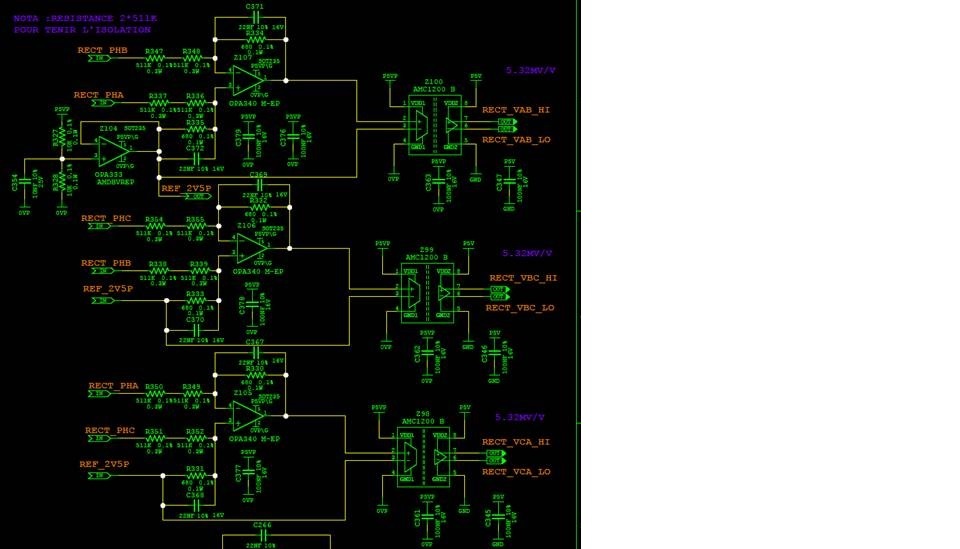Hello,
we use the AMC1200 precision isolated amp to measure the AC input voltages in a an active 3-phase rectifier (as well as the rectified output voltage).
To be able to measure negative voltages of the AC inputs we shift VINn to the mid voltage of (VDD1 - GND1) with a voltage divider followed by an op-amp in a follower configuration.
The AC input voltage is scaled down to a suitable range using a differential amplifier and shifted using the output of the follower described above, then provided to the VINp of the AMC1200.
Our measurements show that the input voltage of the AMC1200 is as expected but the ouput shows a gain error much greater than what it should be (in the order of several %). We perform our mesaurments at ambiant temperature in a lab, using labaratory power supplies (clean supply voltage).
We have no idea what is wrong with our circuit. Can you help?
Thanks and regards,
Nicolas


